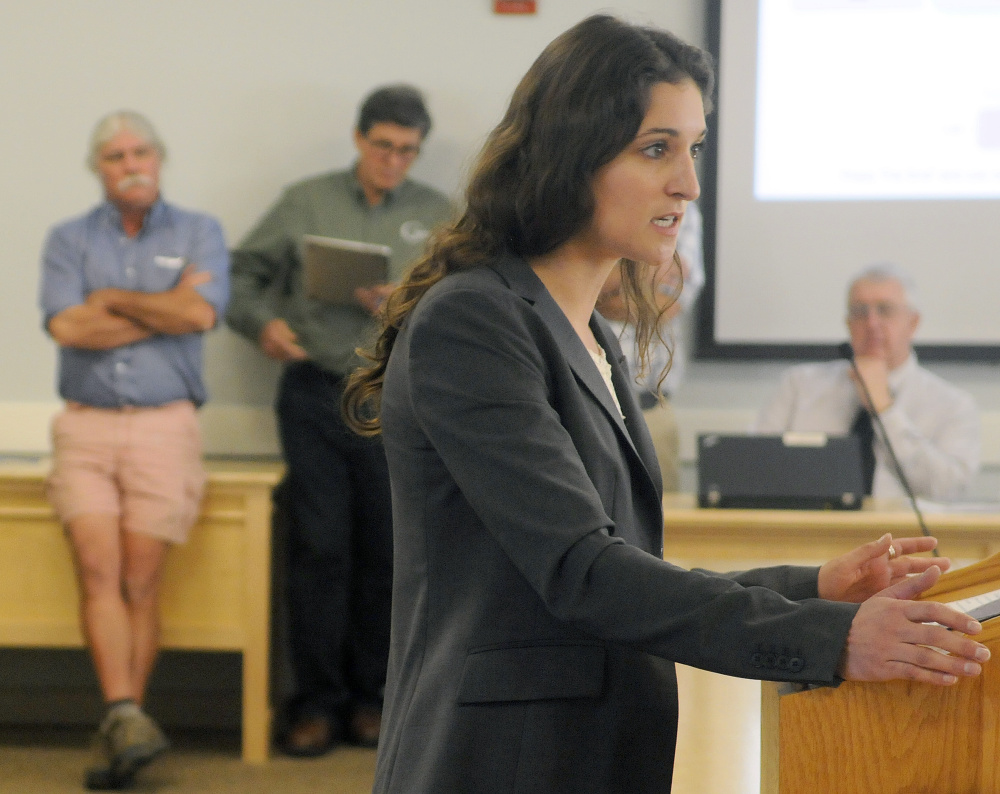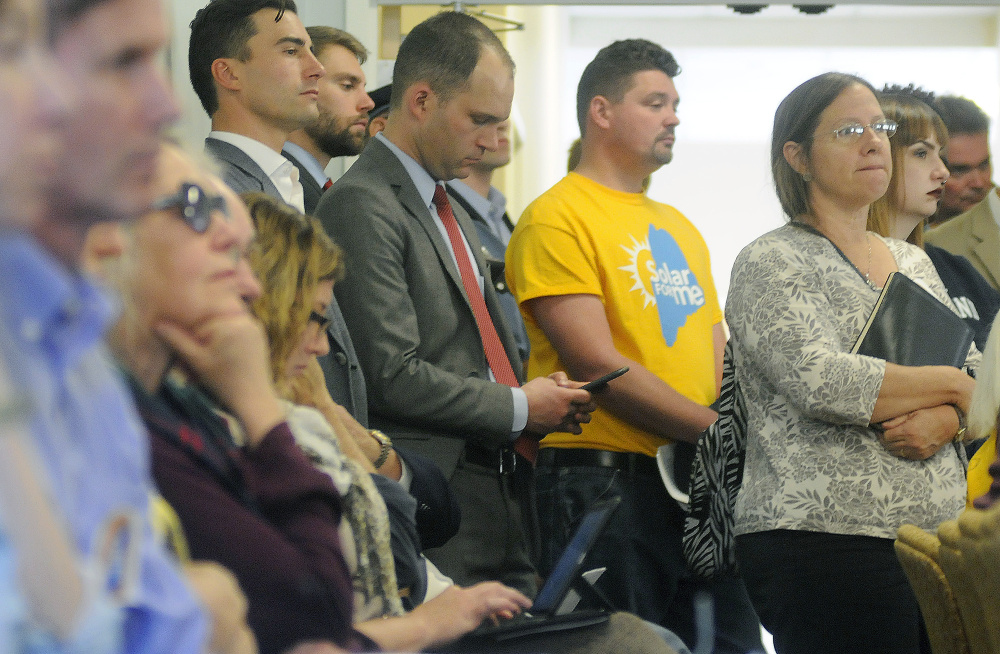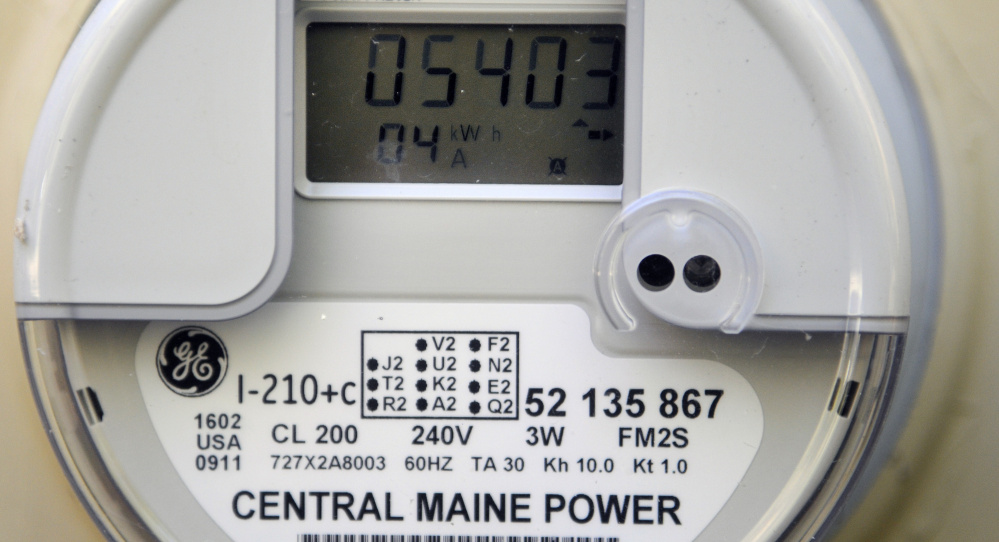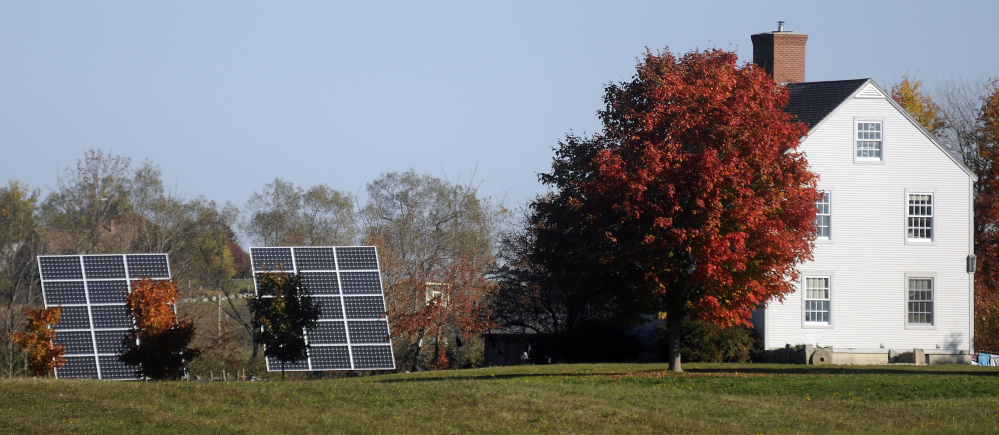HALLOWELL — A parade of residents and small-business owners told the Maine Public Utilities Commission on Monday that its proposal to phase out financial incentives for homeowners using solar panels would stifle the growth of solar and already is having a chilling effect on installations. Several who testified at a public hearing said the commission should withdraw its proposal and let the Legislature set solar policy.
But those comments were tempered by testimony on behalf of utilities and Gov. Paul LePage’s energy director, and from a consumer affairs consultant who said the current financial incentives for rooftop solar hurt other ratepayers. And the state’s Public Advocate said the PUC’s proposal failed to determine the actual impact on electric customers and should be withdrawn for further analysis.
Overall, though, it was a day for solar installers, clean-energy advocates and their allies to voice frustration with the PUC’s actions.
“The PUC failed to do its job, which was to properly review net metering,” Vaughan Woodruff, owner of Insource Renewables in Pittsfield, said at a rally of supporters before the hearing.
At issue is a decades-old rule that requires utilities to credit the bills of homeowners with roof-top solar panels for the full retail price of all the electricity they send into the grid. Those credits chiefly help homeowners recover the costs of solar-electric panels, which can average $10,000 or so. The credits continue to be paid as long as power is generated.
This arrangement, called net-energy billing or net metering, was set up in the 1980s to help jump-start solar when the technology was new. But panel costs have fallen sharply in recent years, and utilities and some policymakers say it’s time to trim the incentive. As solar’s popularity grows, they say, the credits are shifting the cost of serving homes with solar panels onto other customers.
Last month, the three PUC commissioners – all appointed by LePage – proposed the change that would grandfather net-metering credits for current solar homeowners for 15 years, and phase out benefits for new solar owners over 10 years.
Advocates point to jobs as one important facet of growing Maine’s solar economy.
At the hearing, John Egan, a senior vice president for lending at Coastal Enterprises in Brunswick, said he had made $3 million in loans to solar businesses and that net metering is an effective tool to attract this investment. But the uncertainty now surrounding Maine’s solar policy, he said, already was slowing activity.
Sadie Lloyd, assistant planner for Belfast, said the city had two solar-electric installations that were supplying 20 percent of Belfast’s needs, but wouldn’t take on a third project without net metering.
Woodruff, from Insource Renewables, said he was aware of one fellow solar installer who has gone out of business and another that went more than three weeks in the summer – the prime construction season – without a project.
But Barbara Alexander, a former director of the PUC’s consumer assistance division who’s now a national consultant, said if lawmakers want to support a solar industry for job creation, they should do it through taxes, not electric rates.
As net metering now stands, she said, costs are shifted from wealthier residents, who are more likely to have panels, to lower-income households. That’s because net metering shifts the cost of distributing power to homes of non-solar customers, by crediting solar customers for the full retail rate.
“This is not a debate about whether solar power is good or bad or whether we need to address climate change,” Alexander said. “The issue is what ratepayer-funded subsidies should be given to rooftop and community solar customers.”
CONFLICTING ARGUMENTS
Solar supporters dispute this point of view, and say net metering isn’t a subsidy. They say the value of this energy actually is greater than its cost. And they cite a study done for the PUC in 2015, and updated last summer, to prove their point.
The updated study concluded that the value of power produced near its point of use is worth roughly 27 cents per kilowatt hour over 25 years. In Maine, the average home electric rate today is less than 16 cents per kilowatt hour.
But teasing out the components that contribute to that 27-cents figure paints a more complicated picture. The PUC’s consultant found that just over 17 cents of the total value was primarily from reducing the demand for power from the grid. The other 9 cents or so were “societal benefits,” linked to emitting less climate-changing carbon dioxide and pollutants into the air.
That leads opponents to say that while there may be benefits to solar, they don’t offset the financial costs to ratepayers.
Central Maine Power contends net metering cost ratepayers $1.3 million last year. It says the cost will grow as more capacity is installed, although solar advocates say they haven’t seen the math. While the company detailed its position in written testimony, CMP officials didn’t testify Monday. But Ashley Brown, a seasonal Maine resident and executive director of the Harvard Electricity Policy Group, laid out his reasoning why net metering should be discarded and replaced with a price structure that reflects the fluctuating value of electricity on the market. That argument also was made by the director of LePage’s energy office, Patrick Woodcock.
In a more-nuanced critique, Tim Schneider, the state’s Public Advocate, said the PUC hasn’t done the analysis to estimate how much its proposal will cost consumers. He suggested it be withdrawn and modified with some of the approaches contained in a compromise bill that was vetoed by LePage.
The debate Monday reflected similar fights about the future of solar energy development taking place across the country, as utility regulators and politicians try to define the value and benefits of small solar-electric installations, as well as determine who should pay, and how much, to help expand their use.
At least 17 states have undertaken value-of-solar studies, according to the Solar Energy Industries Association.
The PUC has said it plans to make a decision before year’s end.
That will set the stage for a rematch in the Legislature. Last spring, a compromise solar bill that had been the result of a year-long study and negotiations among stakeholders failed to become law after the Legislature fell two votes short of overriding a veto by Gov. Paul LePage.
Clean-energy advocates have vowed to reintroduce a solar bill and are awaiting the outcome of next month’s election to assess the make-up of the incoming Legislature. But at a news conference Monday before the hearing, solar supporters read a statement from Sen. Tom Saviello, R-Wilton, who said he intends to sponsor a bill next year to “modernize Maine’s solar economy.”
Tux Turkel can be contacted at 791-6462 or at:
tturkel@pressherald.com
Twitter@TuxTurkel
Send questions/comments to the editors.










